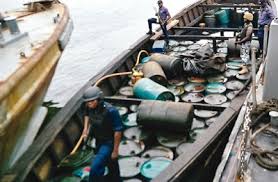According to numbers provided to the government by the state oil corporation NNPC, the price of gasoline subsidies in Nigeria increased to 525.714 trillion naira ($1.22 billion) in August, increasing the total amount spent this year to 2.568 trillion naira.
The budget is under pressure, and the Nigerian National Petroleum Corp. is losing money as a result of the rising costs of maintaining low gasoline prices in Africa’s most populous country (NNPC).
Following the government’s January decision to backtrack on its promise to cease fuel subsidies in order to prevent protests leading up to the country’s presidential elections in February 2023, the Nigerian parliament in April approved a 4-trillion-naira petrol subsidy for this year.
Due in major part to subsidy expenses, NNPC has not submitted any funds to the federal government this year. The amount owed in August was less than the 448.782 billion naira in July, according to a report the NNPC gave the Federation Account Allocation Committee on Friday.
According to data presented at the same meeting by the Nigerian Midstream and Downstream Petroleum Regulatory Authority, some of the cost increase was due to a larger daily supply of gasoline, which surged to 71.8 million liters, up roughly 10% from July.
Due in major part to theft from pipelines, which has reduced production, oil production in August averaged just 1.18 million barrels per day, much below the country’s OPEC quota of 1.8 million bpd.



















